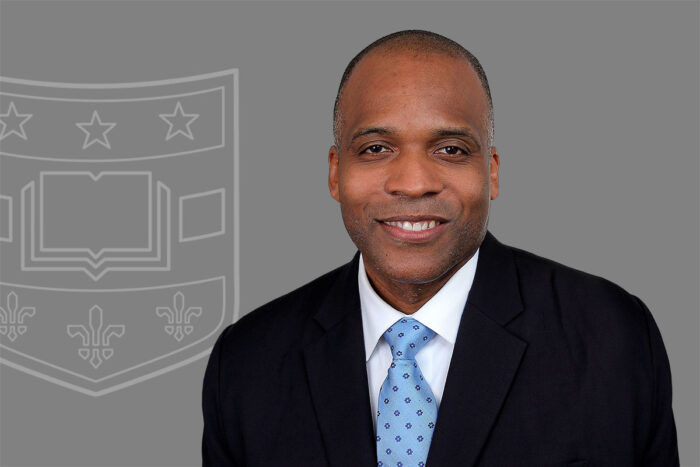Martin to lead pediatric surgery division
Surgeon-scientist also to be surgeon-in-chief at St. Louis Children’s Hospital
 Courtesy of Colin Martin
Courtesy of Colin Martin Colin A. Martin, MD, a specialist in intestinal rehabilitation surgery and an advocate for diversity, equity and inclusion in surgery, has been named director of the Division of Pediatric Surgery in the Department of Surgery at Washington University School of Medicine in St. Louis. He also will serve as surgeon-in-chief at St. Louis Children’s Hospital. He will begin in his new role Sept. 5.
Martin is an associate professor of surgery at the University of Alabama at Birmingham (UAB) Heersink School of Medicine and surgical director of the Center for Advanced Intestinal Rehabilitation at Children’s of Alabama and UAB. He also serves as the surgery department’s vice chair for diversity, equity and inclusion and co-director of the department’s Pre-College Research Internship for Students from Minority Backgrounds.
“Dr. Martin is a remarkable pediatric surgeon-scientist whose leadership, surgical skill, innovative research and dedication to improving health equity strongly reflect the core values of our mission in the Department of Surgery,” said John A. Olson Jr., MD, PhD, the William K. Bixby Endowed Professor and head of the Department of Surgery. “His knowledge and expertise will have a significant impact on the children of St. Louis, as well as academic pediatric surgery at Washington University and across the country.”
In terms of patient care, Martin’s interests lie in gastrointestinal surgery, particularly intestinal rehabilitation surgery, neonatal surgery and thoracic surgery. His research has focused on understanding the effects of maternal environmental stress on the development of newborns’ intestinal immune systems, and how disturbances to the infant intestinal immune system contribute to intestinal diseases of prematurity such as necrotizing enterocolitis, a life-threatening illness involving inflammation of the intestines. His current projects include understanding whether human breast milk exosomes — tiny molecular sacs of biologically active molecules that are found in breast milk but not in formula — have therapeutic and immune benefits for premature infants. His research group also is using C. elegans — a tiny, noninfectious, nonparasitic worm that lives in the soil — as a model to understand how stress is transmitted across generations and affects intestinal immune development.
In addition to his work in the operating room and the lab, Martin is a leader in promoting diversity, equity and inclusion in surgery. In a recent study examining gastroenterology and gastrointestinal surgery departments, he showed that hospitals with higher-ranked departments had a greater degree of diversity in their faculty and were more likely to emphasize diversity in their mission statements than hospitals with lower-ranked departments. Another study revealed that female and Black surgeons tended not to receive national leadership opportunities commensurate with their accomplishments.
Martin also co-edited a book titled “Diversity, Equity and Inclusion,” published in 2021, that uses real-life scenarios to illuminate the challenges involved in implementing the principles of diversity, equity and inclusion in academic surgery, and provides a detailed guide to the best practices for overcoming them.
“Many sectors, including academic surgery, have historically done poorly in creating and sustaining a diverse and culturally competent workforce,” Martin said. “The data are clear that diverse teams perform better. This concept not only includes diversity of race and ethnicity, but also of age, background and experience. The Washington University Department of Surgery has shown a commitment to promoting DEI learners, faculty and staff. I am excited to join this group and continue to enhance this important mission.”
Martin earned his medical degree from Wayne State University School of Medicine in 2003. He completed his general surgery residency at the University of Cincinnati and a postdoctoral research fellowship at Cincinnati Children’s Hospital before completing his pediatric surgery fellowship at Vanderbilt University.
Martin succeeds Brad W. Warner, MD, the Jessie L. Ternberg, MD, PhD, Distinguished Professor of Pediatric Surgery, who has led the division since 2007. Warner will remain on the faculty and continue caring for patients, mentoring trainees and conducting research.







